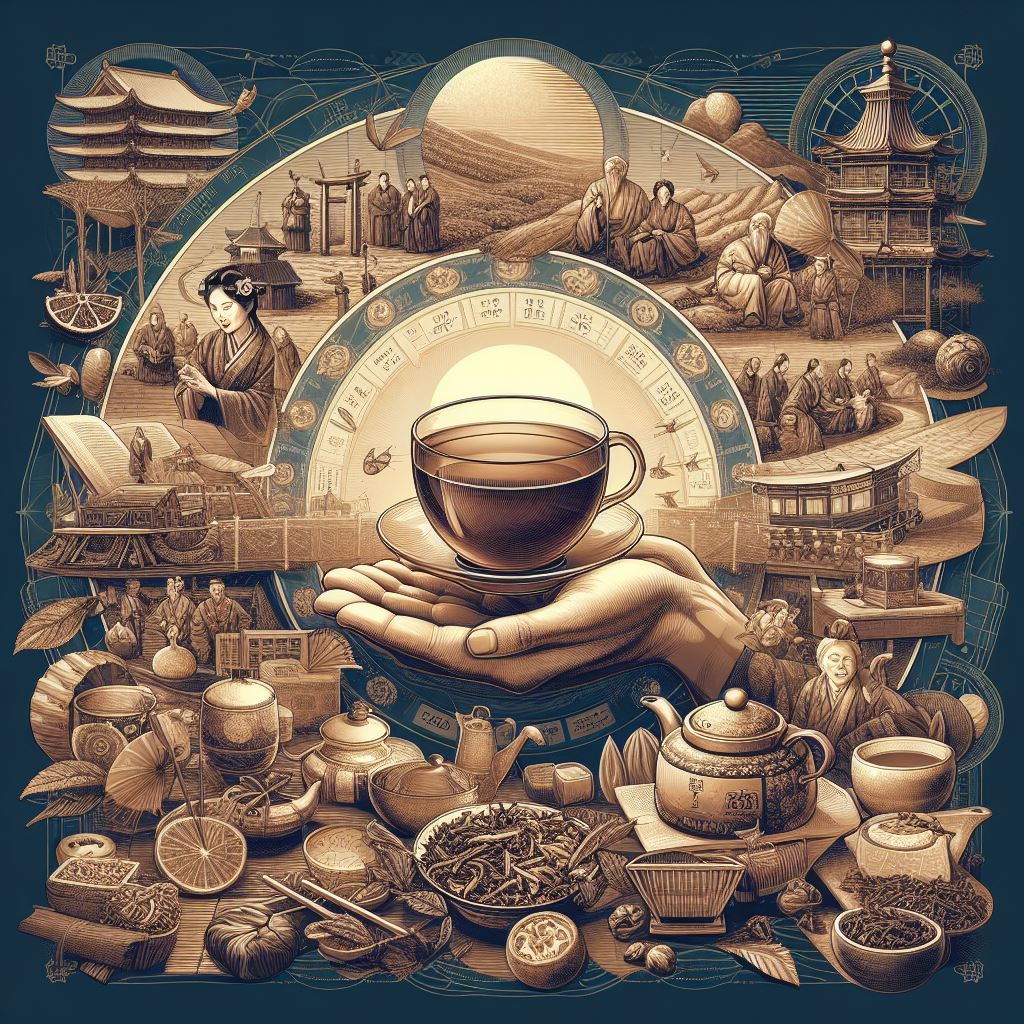
The History of Tea: From Ancient Legend to Global Beverage
Share
Tea, a beverage cherished by millions around the world, has a rich and captivating history that spans thousands of years. From its mythical origins in ancient China to its status as a global commodity, the story of tea is as diverse and complex as the flavors found in a well-steeped cup. This article explores the origins and evolution of tea, illuminating its cultural, social, and economic significance throughout history.
Ancient Legends and Mythical Beginnings:
The story of tea begins in ancient China, where legend has it that Emperor Shen Nong, a mythical figure and renowned herbalist, discovered tea by accident over 5,000 years ago. As the tale goes, while boiling water in the shade of a tea tree, leaves from the tree drifted into the pot, infusing the water with a delightful aroma and flavor. Upon tasting the beverage, Shen Nong was intrigued and found it to be refreshing and invigorating.
Early Cultivation and Spread:
Over time, tea cultivation spread throughout China, with the earliest recorded mention of tea dating back to the 6th century BCE. Initially prized for its medicinal properties, tea soon became a popular beverage enjoyed by emperors, scholars, and commoners alike. The practice of tea drinking evolved from simple medicinal brews to more elaborate rituals and ceremonies, laying the foundation for tea culture in China.
The Silk Road and Tea Trade:
The introduction of tea to other regions can be attributed to the Silk Road, a network of trade routes that connected China with the rest of the world. Tea, along with other goods such as silk, spices, and precious metals, was traded along these ancient routes, leading to its spread to neighboring countries such as Japan, Korea, and Tibet.
Tea in Japan and the Tea Ceremony:
In Japan, tea was introduced by Buddhist monks in the 9th century CE and quickly became an integral part of Japanese culture. The Japanese tea ceremony, known as "chanoyu" or "sado," emerged as a highly ritualized practice centered around the preparation and serving of matcha, powdered green tea. Influenced by Zen Buddhism, the tea ceremony emphasizes harmony, respect, purity, and tranquility.
The British Love Affair with Tea:
Tea reached the shores of Britain in the 17th century, thanks to explorers and merchants who brought back tea leaves from their travels to the Far East. Initially considered a luxury reserved for the aristocracy, tea gradually became more affordable and accessible to the masses with the rise of the British East India Company and the establishment of tea plantations in British-controlled territories such as India and Ceylon (Sri Lanka).
Tea Today: A Global Beverage:
Today, tea is enjoyed by people of all ages and backgrounds in virtually every corner of the globe. From traditional tea ceremonies in Asia to casual tea breaks in the West, tea continues to hold a special place in the hearts and cups of millions worldwide. Whether sipped hot or cold, black or green, herbal or flavored, tea remains a symbol of hospitality, comfort, and connection—a testament to its enduring legacy and universal appeal.
The history of tea is a story of discovery, innovation, and cultural exchange that spans centuries and continents. From its humble beginnings as a medicinal herb in ancient China to its status as one of the world's most beloved beverages, tea has left an indelible mark on human history and culture. As we raise our cups in celebration of this remarkable drink, let us toast to the enduring legacy of tea and the countless moments of joy, comfort, and camaraderie it brings into our lives.
